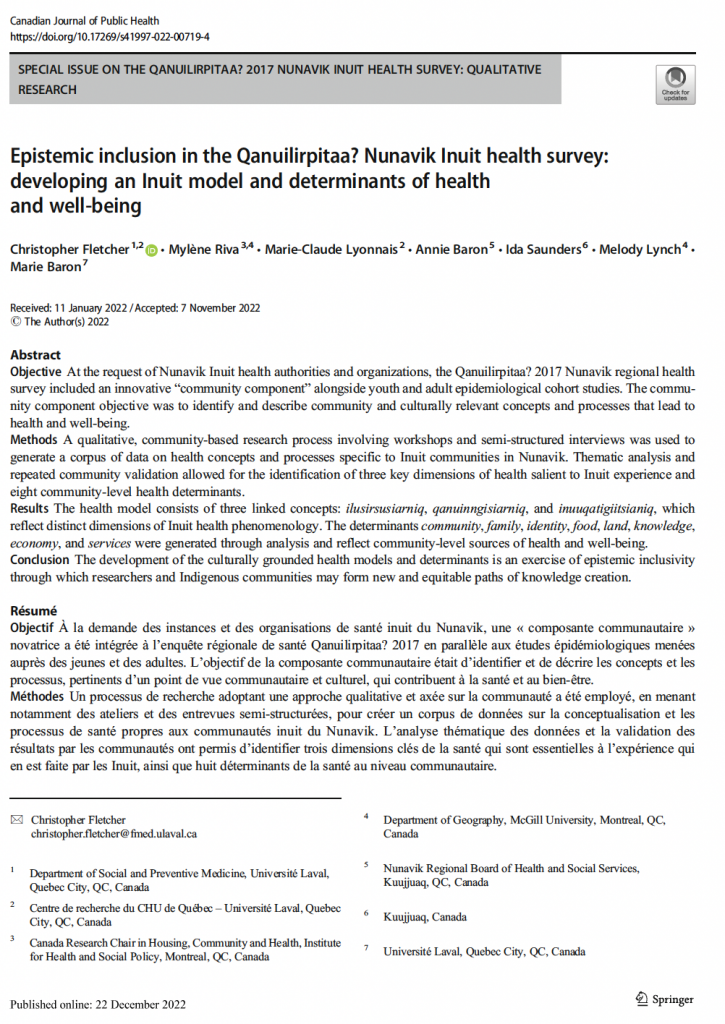Check out our new publication in a special issue of Canadian Journal of Public Health about qualitative research in the 2017 Nunavik Inuit health survey. Our paper is called: Epistemic inclusion in the Qanuilirpitaa? Nunavik Inuit health survey: developing an Inuit model and determinants of health and well-being.

Objective :At the request of Nunavik Inuit health authorities and organizations, the Qanuilirpitaa? 2017 Nunavik regional health survey included an innovative “community component” alongside youth and adult epidemiological cohort studies. The community component objective was to identify and describe community and culturally relevant concepts and processes that lead to health and well-being.
Methods: A qualitative, community-based research process involving workshops and semi-structured interviews was used to generate a corpus of data on health concepts and processes specific to Inuit communities in Nunavik. Thematic analysis and repeated community validation allowed for the identification of three key dimensions of health salient to Inuit experience and eight community-level health determinants.
Results: The health model consists of three linked concepts: ilusirsusiarniq, qanuinngisiarniq, and inuuqatigiitsianiq, which reflect distinct dimensions of Inuit health phenomenology. The determinants community, family, identity, food, land, knowledge, economy, and services were generated through analysis and reflect community-level sources of health and well-being.
Conclusion: The development of the culturally grounded health models and determinants is an exercise of epistemic inclusivity through which researchers and Indigenous communities may form new and equitable paths of knowledge creation.
The full text can be found here.
